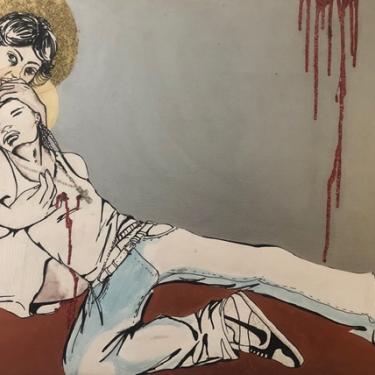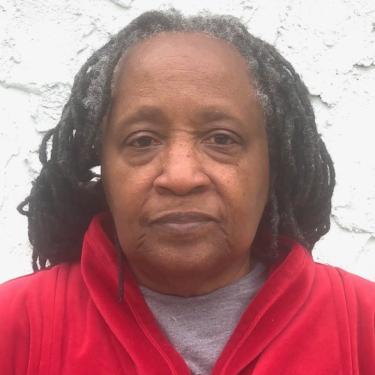
It has been called the pandemic within the pandemic. The first pandemic is caused by a small strand of RNA, now called the "novel” Corona virus because it has never been seen before. Scientists and health workers don’t know how it really works, why it shows up in so many different ways, and why some get so sick for so long. And so many have died.
In the United States it has exposed long-standing inequalities with death tolls significantly higher for black and Latinx people; and Doctors Without Borders , a global relief agency that brings emergency medical services to poverty-stricken war-torn areas of the developing world has set out to the Navajo Reservation in America’s southwest to bring doctors and engineers and community health educators to treat those who are ill and to develop systems to bring potable water to homes, to clear roads to connect far flung homesteads, to bring medicine and equipment to a people who have been isolated and consistently impoverished for over a century. In the United States.
The second pandemic can be known by the names of those who were murdered: Ahmaud Arbery, Breonna Taylor, George Floyd. Victims of police violence (and, in the case of Arbery, former police who acted on the authority of white people with guns to track down and murder black men who are jogging through the neighborhood). This is the pandemic of lynchings, the ultimate vicious horror of white supremacy, the destruction of black lives by white people who are not held accountable for the killings. It dates from the post- Civil War Reconstruction Era as an instrument of terror to keep black people confined to carefully defined spaces of geographic, economic, social, civil, and political inferiority and humiliation. It’s a traumatic legacy implanted in the core of every African-American person, one that lives within our memories but flashes into immediate, visceral terror when the police roll up unexpectedly; when a white person calls the cops; when you are vulnerable to the white gaze that signals that you don’t belong where you are. And there is no place that is safe for us. We’ve been pulled over, harassed, threatened, beaten, and at times murdered, for jogging in the street, for sleeping in the dorm, for watching birds in the park, for sleeping in our own home, for eating ice cream alone at home, for playing loud music in the car, for playing with a toy gun, for asking for directions when our car breaks down, for wearing a hoodie and running home in the rain to carry iced tea and Skittles for yourself and your little brother. Our lives do not matter. No one is coming to save us. And no one will be held accountable if we die.
The two pandemics intersected in dangerous and deadly fashion last month. Black people were suffering an unusually high death rate from the Covid virus and facing the economic repercussions of joblessness or the risk of infection from traveling to low income jobs that bring them in close contact with potentially sick people. And then we watched as one of us, a black man, had his life snuffed out in daylight, in public, by a police officer. An officer who kept his knee pressed into Mr Floyd’s neck for eight and a half minutes while Mr Floyd was lying prone on the ground pleading for his life. “I can’t breathe,” he said over and over. He called for his mother who has been dead for two years. Finally he was still. He didn’t move. His eyes closed and he was limp.
It was caught on tape and the tape was seen around the world. People were sickened, outraged, numbed with dread and feeling powerless. The feelings wouldn’t go away and for many the pain and frustration turned to rage.
And here we are. Many of us are, not just black people, but people who have empathy and a sense of humanity. People who feel this in their heart and in their gut and deep in their soul. This is not an abstraction.
And as Orthodox Christians we have been called to be this way. We are called to see Christ in all people, especially “the least of these.” Jesus told us in the Beatitudes that God’s blessing and favor are for those who mourn, who have a pure heart, who hunger and thirst for righteousness, for the peacemakers; God is there when men shall revile you and persecute you and say all manner of evil against you falsely for my sake. We are called to be engaged in the world, to care. To rejoice and be exceedingly glad for great is your reward in Heaven.
This is not easy. The Psalms describe the toll that injustice takes on us:
I sat there in despair, my spirit draining away, my heart heavy, like lead...
Hurry with your answer, God! I’m nearly at the end of my rope. Don’t turn away, Don’t. (Psalm 143)
The pandemic of racial violence affects society the way the body is affected by disease. In an autoimmune disease , like lupus and arthritis and multiple schlerosis, the immune system, which should protect you, turns on you and makes you sick. Cancer cells feed on and destroy healthy cells.* Scientists and medical professionals are geared up to fight Covid-19. This time the virus is new but we’ve conquered others like it. But how do we cure inequality, hatred, violence, not only in the United States but globally as ethnic tensions and migration issues are tearing societies apart?
We look to Jesus as our teacher and guide. When Jesus ascended into Heaven to sit at the right hand of the Father he took his humanity with him. His body still bore the stigmata of the crucifixion and the scars of the torture he suffered. He’d been hung on a tree/the cross but even this humiliation did not bar his entry (Deacon Jonathan Reavis, Brotherhood of St. Moses the Black). The disciples and the women watched in awe and sadness as he left them on the hilltop. Then the angel said, “Why do you stay looking up to Heaven. He will return the same way he left. Go now.” And they returned to their homes, and waited for the Holy Spirit, and worked together spreading news of his life and works and Resurrection.
When the Myrrhbearers visited the tomb they came to tend the broken body of the Son who had suffered such pain. They were grieving. The center of their lives had been destroyed. But they had faith to come there. They too were told not to look for the living among the dead but to go home, together, to spread the word to the disciples. Do the work that Jesus taught them to do. We are called to be myrrhbearers. Like those women we must show up, bear witness, let the world know what has happened. As Emmett Till’s mother opened his casket to show the world what they did to her son. As we looked on as Ahmaud was shot, as George Floyd was suffocated. We are still in grief. We are still the Pieta. How long, oh Lord, How long?
So, at Pentecost, the swirling winds and tongues of fire and message in many languages, literally inspired them... put the spirit in them. This howling, flaming message brought God’s own Holy Spirit to them. They would never be alone and their faith would keep them moving and working through rejection, imprisonment, beatings, arrests, floods, and droughts and hunger.
“In the last days, God says, I will pour out my Spirit on all people. Your sons and daughters will prophesy, your young men will see visions, your old men will dream dreams,” Luke writes in Acts.
This Spirit is here for all of us. All of us are made in the image of God. So we know that the work of justice and peacemaking and freeing people from sickness and imprisonment is holy work. We can expect to be exhausted at times, to feel despair, to be overwhelmed with how vast the job is. But we have the life and words and works of Jesus himself. We have the example of the Myrrhbearing Women and the disciples of the Lord: Peter, James, John, Thomas and the rest of the 12; Mary Theotokos, Mary the Magdalen, Joanna, Tabitha called Dorcas, Photini and the rest of the women.
We will get through this. Like Paul and Silas who sang in jail, as did the Civil Rights workers in Parchman Prison In Mississippi —-to keep up our spirits and encourage each other. We read Scripture and pray to deepen our faith and remember our mission. We act in solidarity with people who share our goals and values. We march, we teach, we contribute time, money and resources to our churches and volunteer groups and N.G.Os, we sew masks and sign petitions. And we know that through the anxiety and fatigue and sleepless nights and dreadful fears, working together in Christ’s name we are helping to heal the viral pandemic that threatens our bodies and the human made pandemic that threatens our lives and our souls.
*Thanks to the remarks by Dr Conrad Fischer.
Painting is by the artist Aisha Tandiwe Bell-Caldwell .
Act:
https://www.obama.org/anguish-and-action/
Listen:
http://mosestheblack.org/about/news/
Use the internet, donate, engage your platform:
https://flip.it/V7546H
Judith Scott, a retired principal in the New York City public school system, holds a masters in theology from Union Theological Seminary.



